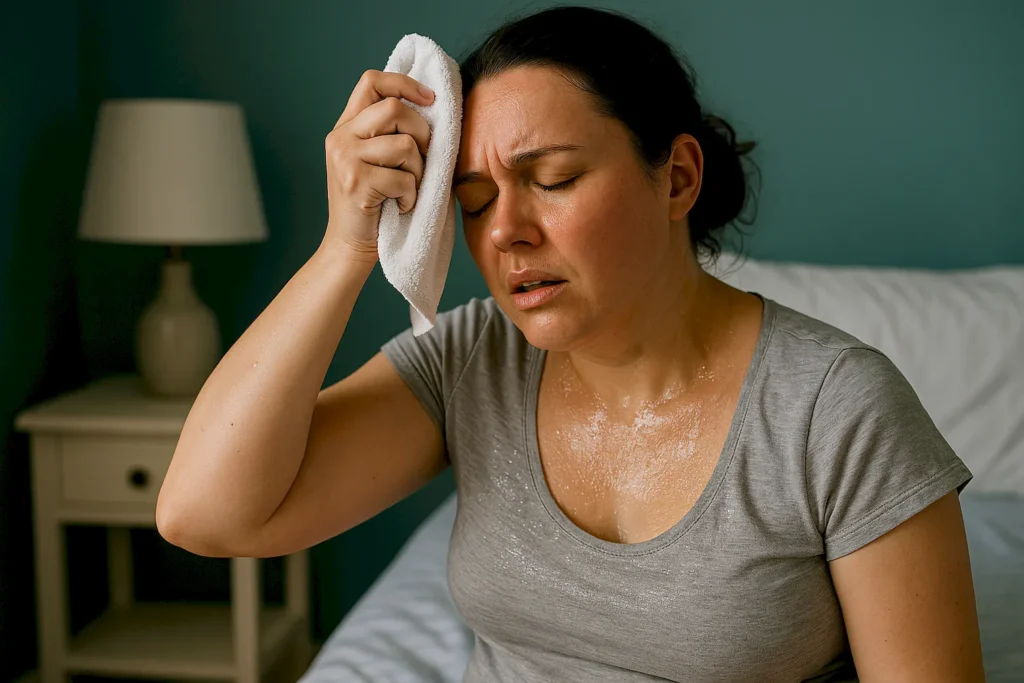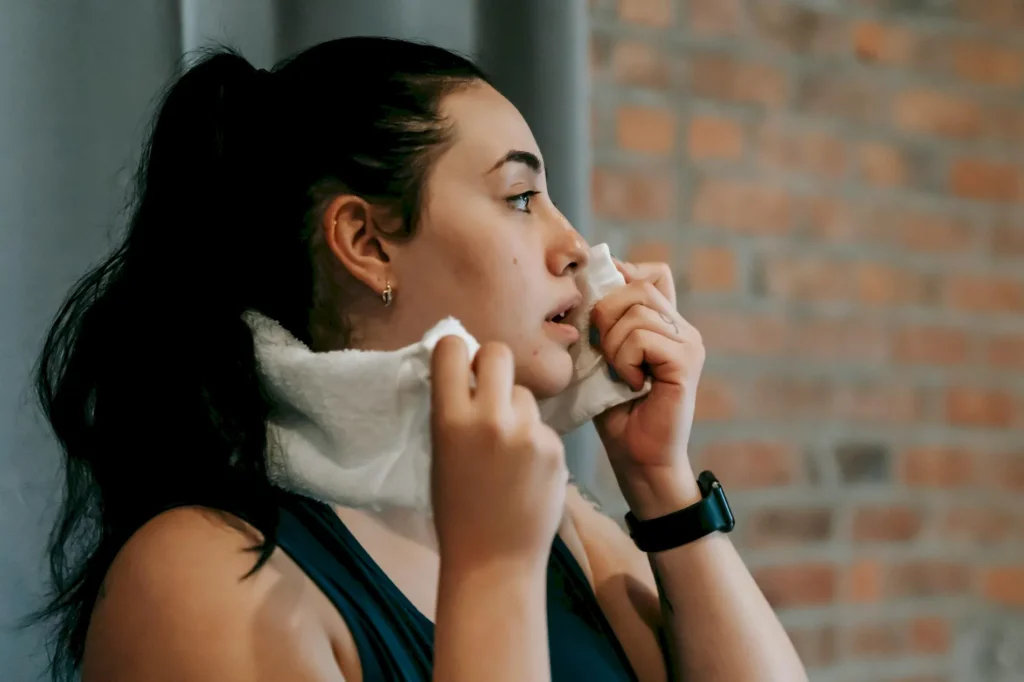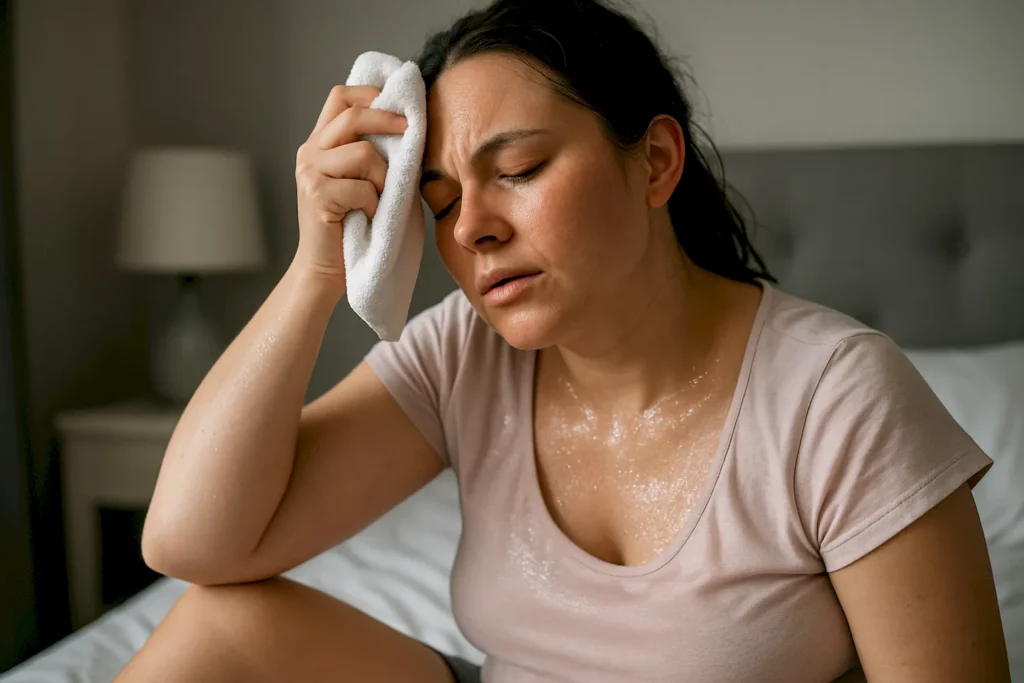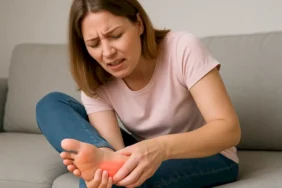Post pregnancy sweats are a common and often unexpected challenge for new mothers, primarily caused by hormonal fluctuations and the body’s adjustment after childbirth. Night sweats, in particular, can disrupt sleep and affect overall well-being. Common triggers include hormonal shifts, stress, and changes in metabolism, while the duration of symptoms typically varies from person to person. Effective management strategies focus on creating a comfortable sleep environment, staying well-hydrated, and adopting natural remedies to reduce discomfort. It is important to recognize when post pregnancy sweats become persistent or severe, as medical advice may be necessary in such cases. Understanding these factors empowers new mothers to take proactive steps in managing symptoms and improving their postpartum recovery.
What Causes Post Pregnancy Sweats?
Post pregnancy sweats can be a challenging experience for many new mothers as their bodies undergo significant changes. These sweats are often linked to hormonal fluctuations, particularly estrogen and progesterone levels, which can lead to an increased metabolism and higher body temperatures. Additionally, night sweats may disrupt sleep, causing exhaustion and discomfort during the postpartum recovery period.
Main Causes of Post Pregnancy Sweats
- Hormonal Changes: Rapid shifts in hormone levels after childbirth are a primary cause of post pregnancy sweats.
- Breastfeeding: The act of breastfeeding can stimulate sweat glands due to the increase in caloric needs.
- Body Temperature Regulation: The body may struggle to regulate temperature as it loses the extra weight gained during pregnancy, especially in areas like the after pregnancy belly, where skin and muscles are still adjusting.
- Increased Metabolism: A rise in metabolic rate to support recovery and nursing can contribute to excessive sweating.
- Stress and Anxiety: New mothers may experience heightened stress, which can trigger sweating as a natural response. Additionally, many women report that their joints hurt post pregnancy due to hormonal fluctuations and physical strain during recovery, which often occurs alongside symptoms like night sweats.
- Dietary Changes: Changes in diet, especially if introducing spicy foods, can lead to increased perspiration.
Understanding the various causes of post pregnancy sweats is essential for managing this condition effectively. It’s crucial to recognize that while these sweats are often temporary, they can be distressing for new moms trying to adjust to their new roles. Staying well-hydrated and dressing in loose-fitting clothing can help alleviate some discomfort associated with these sweats.
Post pregnancy sweats are a normal part of the recovery process, but they should not be overlooked, especially if they persist or worsen.
Ultimately, knowing what leads to post pregnancy sweats empowers mothers to address this issue more effectively. With the right strategies, such as adjusting one’s environment and prioritizing self-care, it is possible to mitigate the discomfort associated with post pregnancy sweats, allowing for a smoother transition into motherhood.
Understanding Night Sweats After Pregnancy
Post pregnancy sweats can be an uncomfortable and sometimes distressing experience for new mothers as their bodies adjust to significant hormonal fluctuations. Understanding night sweats after pregnancy is essential to alleviate any anxiety related to this common phenomenon. These episodes, often caused by hormonal changes, can lead to disrupted sleep and may affect a mother’s ability to care for her newborn effectively.
Steps to Understand Night Sweats
- Identify the timeline: Recognize when the night sweats began in relation to childbirth.
- Monitor frequency: Keep track of how often night sweats occur.
- Recognize patterns: Note if night sweats are more prevalent during certain times, such as during breastfeeding.
- Understand hormonal changes: Educate yourself about how hormones like estrogen and progesterone fluctuate post-pregnancy.
- Identify triggers: Pay attention to factors that may exacerbate night sweats, like stress or environmental conditions.
- Consider lifestyle factors: Review your diet, fluid intake, and sleep environment for possible contributing factors.
- Seek support: Consult with a healthcare provider if night sweats persist or worsen.
When navigating the world of post pregnancy sweats, it is crucial to remember that these sweats are a natural part of the body’s recovery process. Many women experience them as their bodies transition back to pre-pregnancy states. While frustrating, understanding their origin can help reduce stress and facilitate a smoother postpartum experience. Additionally, it’s beneficial to share your experiences with other mothers who may also be experiencing similar changes.
“Understanding the reasons behind night sweats can empower new mothers and provide reassurance during this transitional time.”
Managing night sweats effectively involves recognizing your body’s unique signals and implementing strategies to mitigate discomfort. Exploring natural remedies and lifestyle modifications can yield significant benefits, helping new moms regain control over their body and sleep patterns. Ultimately, seeking guidance from healthcare professionals can help determine the best approach tailored to individual needs, ensuring a healthier and more comfortable postpartum journey.

Common Triggers of Night Sweats Post Pregnancy
Experiencing post pregnancy sweats can be distressing for new mothers, especially when it disrupts sleep and daily activities. Understanding the common triggers of these night sweats is crucial for effectively managing them. One significant cause is the hormonal fluctuations that occur after childbirth. As the body adjusts to new hormone levels, it can lead to increased perspiration, especially at night.
Another prevalent factor is the body’s thermoregulatory response. After pregnancy, women’s bodies might still be in a state of adjustment, resulting in a disrupted ability to regulate temperature. This response can manifest as night sweats, which can be particularly pronounced during the first few months postpartum. Additionally, the stresses of caring for a newborn can exacerbate these physical symptoms.
Top Triggers
- Hormonal changes
- Stress and anxiety
- Elevated room temperature
- Excessive bedding
- Caffeine and Alcohol consumption
- Illness or infection
- Medications
Common Triggers of Night Sweats and Their Effects
| Trigger | Description | Potential Effects |
|---|---|---|
| Hormonal Changes | Shifts in estrogen and progesterone levels | Increased sweating and hot flashes |
| Stress | Emotional and physical stress from caring for a newborn | Aggravated night sweats |
| Room Temperature | High ambient temperatures during sleep | Increased heat retention and sweating |
| Diet | Caffeine and alcohol intake | Heightened sweating responses |
The role of diet in contributing to post pregnancy sweats cannot be overlooked. Caffeine and alcohol are known stimulants that can increase body temperature and trigger sweating. Furthermore, keeping an eye on room temperature and bedding can greatly aid in minimizing discomfort related to night sweats. Opting for breathable fabrics and reducing the number of blankets can help in regulating body heat during sleep.
Hormonal Changes and Post Pregnancy Sweats
As new mothers navigate the ups and downs of postpartum life, they often encounter a variety of unexpected challenges, one of the most uncomfortable being post pregnancy sweats. These hormone-driven changes can lead to increased perspiration, especially at night. Understanding the underlying hormonal shifts can help moms find ways to cope with this common condition.
Key Hormonal Changes Affecting Sweats
- Estrogen fluctuations
- Progesterone decrease
- Thyroid hormone adjustments
- Cortisol levels rising
- Insulin sensitivity changes
- Increased blood volume
- Nervous system reactivity alterations
The interplay of hormones during and after pregnancy affects not just the body but overall well-being. As estrogen levels drop, women may notice that their body temperature regulation becomes less stable, which can lead to uncomfortable sweat episodes. It is crucial to pay attention to how your body responds as it adjusts to these hormonal changes.
The Role of Estrogen
Estrogen is a key hormone that influences various bodily functions, including thermoregulation. After childbirth, estrogen levels can fluctuate significantly, which may trigger episodes of sweating. Low levels of estrogen may hinder the body’s ability to maintain a stable temperature, resulting in increased perspiration, especially during the night.
Impact of Progesterone
Another important hormone that affects body temperature is progesterone. It typically peaks during pregnancy but undergoes a decline post-delivery. This decrease can influence how the body responds to heat and stress, leading to more pronounced post pregnancy sweats. Managing the effects of these hormonal changes is essential for comfort and can help mothers regain their normalcy.

How Long Do Post Pregnancy Sweats Usually Last?
Post pregnancy sweats are a common concern for many new mothers, often stemming from the significant hormonal shifts that occur after childbirth. Typically, these sweats can last for several weeks to a few months, depending on individual factors such as hormonal levels, breastfeeding status, and stress. It’s important to understand that while they can be uncomfortable, post pregnancy sweats are a normal part of the recovery process, and knowing what to expect can help new mothers cope more effectively.
Estimated Duration Stages
- Initial weeks: Expect increased sweating during the first 1-2 weeks as hormone levels begin to stabilize.
- 2-4 weeks: Sweats may become less frequent but can still occur, particularly at night.
- 1-2 months: Many women notice a gradual decrease in the intensity and frequency of sweats.
- 2-3 months: For some, post pregnancy sweats may persist, especially if breastfeeding continues.
- 3-6 months: Most women experience a significant reduction in sweats, with only occasional episodes.
- Beyond 6 months: If sweats continue past this point, it may be time to consult a healthcare provider.
Overall, the duration and intensity of post pregnancy sweats can vary widely from one individual to another. It may help to keep track of the symptoms and any patterns that emerge, as well as discussing them with healthcare professionals. Understanding one’s body and its unique recovery timeline is key to managing these symptoms effectively.
Effective Ways to Manage Post Pregnancy Sweats
Managing post pregnancy sweats can be challenging, but understanding effective strategies can significantly enhance comfort during this transitional phase. Women often experience increased perspiration due to hormonal fluctuations after giving birth. The key is to adopt approaches that soothe or alleviate these symptoms while keeping a focus on overall well-being.
Ways to Manage Sweats
- Stay Hydrated: Drinking plenty of water can help regulate body temperature and reduce sweating.
- Dress Appropriately: Opt for breathable, moisture-wicking fabrics to keep cool.
- Maintain a Comfortable Room Temperature: Keep living spaces well-ventilated and at a comfortable temperature.
- Use Cooling Products: Consider cooling pillows and breathable sheets for better sleep quality.
- Practice Relaxation Techniques: Engage in meditation or gentle yoga to manage stress that may exacerbate sweating.
- Avoid Spicy Foods: Steer clear of triggers that can raise your body temperature.
Incorporating these strategies can help mitigate the discomfort associated with post pregnancy sweats, allowing for a more enjoyable postpartum experience. Adjusting your environment and habits can create a significant difference, promoting not only physical comfort but also emotional well-being.
Lifestyle Adjustments
Altering certain lifestyle choices can greatly reduce the impact of post pregnancy sweats. Small changes in daily routines or products used can minimize sweating episodes. Aim for consistency in implementing these adjustments to create a lasting effect.
“Simple lifestyle alterations can lead to significant relief from post pregnancy sweats.”
By taking proactive steps, you’ll find that managing post pregnancy sweats can become less daunting. These adjustments help to create a balance in your body, making it easier to navigate the challenges that come with postpartum life.

Natural Remedies for Night Sweats After Pregnancy
Experiencing post pregnancy sweats can be an uncomfortable reality for many new mothers. The hormonal fluctuations that follow childbirth can contribute significantly to night sweats, disrupting sleep and overall well-being. Fortunately, there are several natural remedies that can help alleviate these symptoms, allowing new mothers to regain their comfort and peace during the night.
Herbal remedies stand out as a popular option for managing post pregnancy sweats. Many herbs have properties that can help balance hormones and reduce sweat production. For instance, sage and peppermint are known for their ability to cool the body and can be consumed in various forms such as teas or supplements. Always consult with a healthcare provider before starting on herbal remedies to ensure they are safe during breastfeeding and postpartum recovery.
Herbal Remedies
Classic herbal approaches often include the following:
| Herb | Benefits | Usage |
|---|---|---|
| Sage | Balances hormones | Tea or tincture |
| Peppermint | Cools the body | Tea or essential oil |
| Chamomile | Promotes relaxation | Tea |
| Vitamin B Complex | Supports overall hormonal health | Supplements or foods |
Another effective approach in dealing with post pregnancy sweats includes making careful dietary adjustments. Incorporating whole, nutrient-dense foods can aid in balancing hormones and reducing the intensity of hot flashes during the night. Avoiding spicy foods, caffeine, and alcohol can prevent exacerbating symptoms, leading to a more restful sleep experience.
Dietary Adjustments
Here are some essential dietary tips to consider:
Top Natural Remedies
- Opt for sage or chamomile tea before bedtime.
- Incorporate flaxseeds into your meals for their hormone-balancing properties.
- Stay hydrated by drinking plenty of water throughout the day.
- Avoid spicy foods and caffeine in the evening.
- Include probiotic-rich foods, like yogurt, to promote gut health.
- Practice yoga or gentle stretches to reduce overall tension.
- Maintain a cool bedroom environment by using breathable fabrics.
By exploring these natural remedies and adjusting your diet, you can effectively manage post pregnancy sweats and enhance your overall comfort during this challenging phase of motherhood.
When to Consult a Doctor About Post Pregnancy Sweats
Post pregnancy sweats are a common experience for many new mothers, often caused by hormonal fluctuations and physical changes following childbirth. While these sweats can be bothersome, particularly during the night, they are usually harmless and may diminish over time. However, there are certain situations where these symptoms may indicate a more serious underlying condition. It is essential to be aware of when these sweats could warrant a visit to your healthcare provider to ensure both your wellbeing and peace of mind.
Signs for Medical Consultation
- Severe sweating that disrupts sleep or daily activities
- Night sweats accompanied by fever or chills
- Persistent sweating that lasts beyond six months
- Sudden onset of excessive sweating, not linked to hormonal changes
- Signs of dehydration or electrolyte imbalance
- Unexplained weight loss in conjunction with sweating
- Any other concerning symptoms, such as fatigue or pain
Recognizing these key signs can help you determine whether your experience with post pregnancy sweats is typical or if it requires medical evaluation. Consultation can provide clarity and appropriate treatment options if needed, ensuring that your recovery after childbirth is as smooth as possible. Don’t hesitate to reach out to your healthcare provider if you have any concerns; early intervention can often lead to better outcomes.






